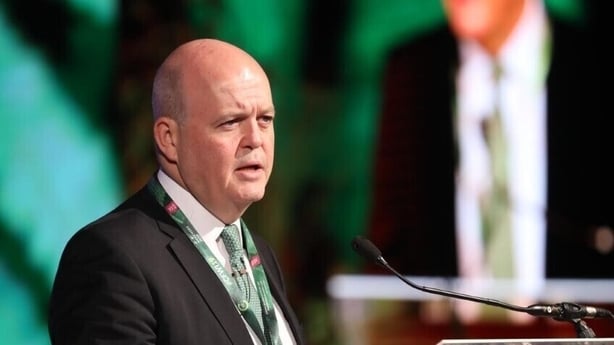A new survey shows that 53% of respondents plan to make living more sustainably a part of their New Year's resolutions.
The AIB Sustainability Index, based on research conducted in December by Amárach Research, focuses on Irish attitudes, behaviours and intentions regarding climate and environmental sustainability.
Over the next year, 67% of respondents said they plan to reduce the amount of packaging and single use plastics they use.
49% also said they intend to become better informed about the impacts of what they buy on the planet.
Today's survey also reveals that 48% of respondents plan to demand more sustainable food options from their supermarkets while 33% said they plan to switch to businesses that are doing more about sustainability.
AIB noted that the impact of Covid-19 on attitudes towards climate and environmental sustainability has been muted.
In some cases it has been a catalyst for positive change with 42% of people saying they are doing more to live sustainably than they did before the pandemic began, while 44% have not changed.
But Covid-19 has fuelled online shopping.
AIB said that while shopping online has a strong environmental impact due to the effects of transport and packaging, its survey shows that people do not particularly take this into account.
Of those who buy online, almost one in two do not consider the sustainability of the delivery at all and another one in three only consider it to some extent, the bank added.
62% of people surveyed said that a company's positive sustainability credentials have an impact on their decision to buy that firm's products or services.
But price is still a key consideration, with 48% saying they would be willing to pay a little more for greener home heating and 44% willing to pay a little more for greener electricity, while still half would not be willing to pay more for these utilities.
Colin Hunt, AIB's chief executive, said that managing climate change is the most important challenge facing this generation.

"That is why earlier this year we committed to achieving Carbon Neutrality across our operations by 2030, using a Net Zero approach. That means cutting greenhouse gas emissions to as close to zero as possible - through elimination of carbon rather than offsetting it," Mr Hunt said.
The AIB CEO said the bank must also look beyond its own operations and the greatest impact that it can have on Ireland's carbon footprint is by supporting customers and helping them to transition to a low carbon economy.
"It is our ambition that green lending should account for 70% of our new customer lending by 2030," Mr Hunt said.

